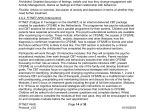Cheshire
Senior Member
- Messages
- 1,129
A new strategy?
https://www.newscientist.com/articl...hronic-fatigue-syndrome/#.WByonAonxg0.twitter
You need to create an account (free)
All those interested in progress on helping those with CFS should unite in the push to find therapies, be they behavioural or biomedical, says Esther Crawley
We know almost nothing about chronic fatigue syndrome (CFS), also known as myalgic encephalomyelitis (ME). And yet it causes misery and suffering for hundreds of thousands of people, including many children.
One in a hundred teenagers in the UK miss a day a week or more of school because of it, and 2 per cent are probably missing out on the normal stuff that teenagers do. Those I see in my clinic are sick with disabling fatigue, memory and concentration problems, and terrible pain. On average, they miss a year of school, on top of which mothers give up work and siblings suffer.
Yet progress on this illness is being hampered by controversy, with some people disputing both its cause and treatment. Some still dismiss it as a non-illness; others decry attempts to treat it with psychological therapy.
https://www.newscientist.com/articl...hronic-fatigue-syndrome/#.WByonAonxg0.twitter
You need to create an account (free)

